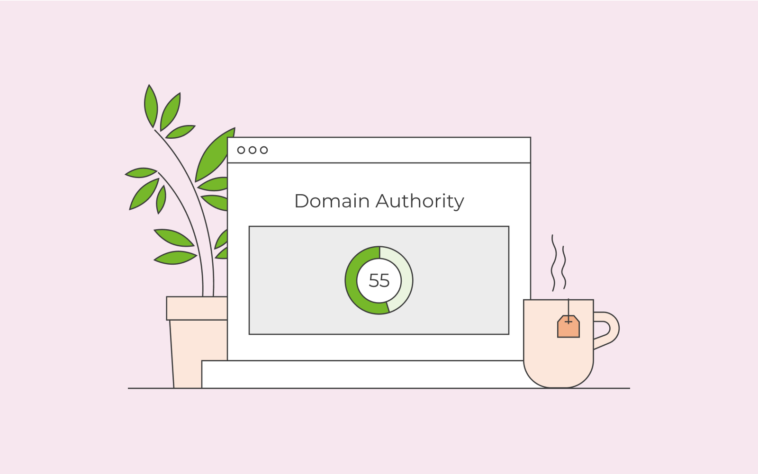Domain Authority (DA) is an algorithm that measures the quality and trustworthiness of a website. It is calculated by taking into account various signals, including backlinks, content, and page load speed.
Why Should I Care About Domain Authority?
In fact, Google doesn’t use domain authority in their rankings system or algorithm, but some SEO experts presents a study that proves the relation between domain authority and SERP ranking, and this seems to be a logical relation, because the DA factors are important to SERP too.
The study suggests that DA is a useful metric and affects the organic traffic that you may receive from Google.
Create Great Content.
If you want to rank higher on search engines, you need to make sure that your site has good content. This means that you should write unique articles and blog posts that will help people find what they’re looking for. You also need to build links to your site so that other websites link to yours. Finally, you need to work on increasing your Domain Authority so that your site ranks better on search results pages.
Build Links.
Domain Authority is determine the quality of a website by measuring the number of backlinks (inbound links) to a website as well as the number of external sites linking to it. A higher Domain Authority indicates that a website is more authoritative than others with lower DA scores.
About Backlinks
The location of backlinks to your site is a major factor in determining their value. Backlinks from relevant websites to your industry have a higher value than links from unrelated websites.
Google also considers backlinks from digital marketing publications. It is not a ranking factor but it is a topic of common discussion in the SEO community.
Your ranking can be affected by the quality of your links. Links from high authority sites carry a higher domain authority. Links from government entities or educational institutions also carry a lot of weight. While high backlinks still correlate with high rankings, there is a downward trend in their importance.
Promote Your Site.
If you want to rank highly on search engines, you need to build links to your site. This means getting other websites to link to yours. You can do this through social media, guest posting, press releases, and more.
Although social media signals do not directly affect search rankings, they do influence them. As a result, smart brands should strive to establish authority in key social channels and should think about social when putting together an SEO strategy.
Monitor Backlinks.
One of the easiest ways to monitor backlinks is by using a service like Ahrefs. It will show you where your competitors are linking to and what those sites are saying about them.
Focus on User Experience.
If you want to rank higher on search engines, then focus on user experience. This means making sure that your website is easy to navigate and use. You should also make sure that your site loads quickly so users won’t leave before they find what they need.
Moz’s Domain Authority Metric
Moz‘s Domain Authority metric has become the gold standard in website reputation assessment. It is based on data from multiple sources, including Google’s PageRank algorithm and links pointing to a website. It is helpful for monitoring your site’s visibility, as it can show you how effective your link building and On-page optimization efforts are.
While Moz’s Domain Authority metric isn’t a factor that Google uses to determine its search engine ranking, it can give you a good idea of how well your website is performing. It can range from 1 to 100 and the higher the score the better. The DA score is based both on the quantity and quality of links to your site.

